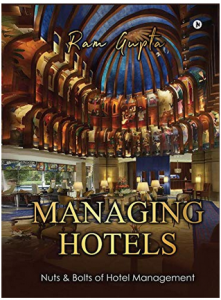One of the effects the hospitality industry felt from the COVID-19 pandemic was the need to optimize contactless and secure guest experiences. Thousands of hotels hoping to provide more personalised experiences to their guests have started relying on the latest technology, especially smartphones. Even though the use of contactless technologies is less prevalent than they were during the pandemic, most guests have now gotten used to the convenience of mobile room keys and mobile check-ins. The resulting reduced check-in duration and being able to bypass front desk interactions have been preferable to hotel guests.
What are mobile keys?
Mobile keys are digital keys provided to guests at hotels directly to their smartphones, reducing the duration of check-ins and increasing customer satisfaction. Mobile keys are typically based on Bluetooth or Near Field Communication, and guests can use these by bringing their smartphones close to the locks.
These mobile keys give guests access to not only their rooms but also to amenities like the spa, pools, restaurants, elevators and fitness centres. Along with virtual keys, the option of checking in through their phones allows guests to skip the front desk lines and go straight to their rooms without much hassle. On top of that, unlike key-cards, most travelers carry their smartphones with them at all times and are less likely to forget their phones, decreasing the chances of being locked out of the room.
Major hotel management companies and franchises like Marriott Group and Hilton hotels have been phasing out magnetised key-cards for mobile keys for their reliability, efficiency, and for being sustainable alternatives. This simple technology has allowed the hospitality industry to provide guests with personalised contactless experiences. For example, the Marriott Bonvoy mobile app offers Mobile Check-In, Mobile Key, Mobile Chat and Requests, and Mobile Dining.
Are mobile room keys preferable over traditional key-cards?
After over two years of travel ban due to the COVID-19 situation, travelers are excited to make the most of their journeys. This means wanting to spend less time checking in and more time just heading to their rooms and shaking off travel weariness. Using their smartphone-enabled keys gives guests a sense of security of having their room keys always with them and safe, while they can minimise hand-to-hand contact that comes with physical keys. In a survey conducted by a leading digital marketing agency of around 1000 guests, almost 73% of the people opted to use their mobile devices as hotel room keys during the pandemic.
Due to their magnetisation, keycards tend to be easily exploited or can get demagnetised over time, which means lower security and higher inconvenience for the guests. Most people have their smartphones secured with passwords or pins, which gives them an added sense of security even if they are misplaced.
From a business point of view, hotels spend a lot of money on the procurement as well as upkeep of traditional keys or card keys. But with mobile room keys, there is no waste, maintenance, or need for disposal. Unlike keycards, mobile keys cannot be tampered with or misplaced, thus, eliminating the costs of replacement. A sustainable and cheaper option in the end, many hotel chains should start parcelling mobile keys as an attraction for potential guests.
By providing guests with mobile keys, hotels can also divert the front desk personnel who would spend a lot of time checking-in guests to tasks that would create more personalised experiences for their guests. In addition, employees do not have to spend time searching for stolen or misplaced keys, increasing their efficiency and reducing key costs for the property.
How beneficial is this tech in the long run?
As guests are always in need of an efficient and secure experience, the hospitality industry should always strive to incorporate newer technologies that can make each guest’s stay or time as convenient as possible. We have seen technologies change over time and bring about revolutions in how the industry functions. In the same way, we can always count on something new coming up that we can use to make the customers happy.
The digital convenience, sustainability, reduced costs, and efficiency that mobile keys can bring to any property will only add value to properties over the next decade and beyond. We must constantly look for ways to cater to the needs of every single guest, be it someone young, wanting the efficiency of technology, or someone older, wanting the personal touch. It is always beneficial to keep up with the technology in this industry to ensure our customers are never left feeling like something needed to be added to their time as a guest.
Ram Gupta is a hotel management graduate. He is a certified Hotel Administrator from U.S. and MIH from U.K. He has over 40 years of sound experience in the Hospitality industry in India, Dubai, U.K, Europe and Japan and is well versed with all areas of business including acquisitions, mergers, joint ventures, diversification, strategic planning, development and operations. He has been associated with over two dozen luxury and boutique hotel projects and has launched two hotel chains in India. He is currently an independent hotel consultant and could be contacted at ramgupta@bcgglobal.com. Website: www.bcgglobal.com
BOOKS ON HOSPITALITY BUSINESS BY RAM GUPTA


ALSO ON,-
AMAZON KINDLE, KOBO, GOOGLE PLAY & i BOOKS
